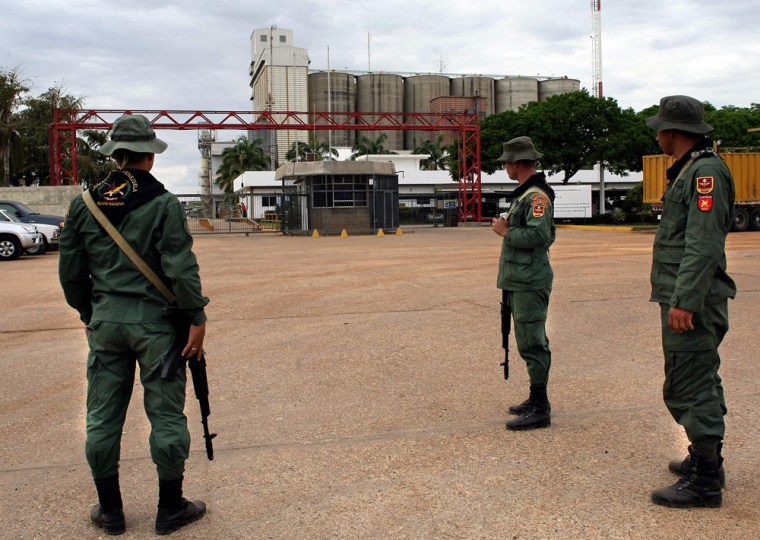President Hugo Chavez ordered the expropriation of a rice-processing plant in Venezuela owned by American food giant Cargill Inc. on Wednesday because the company allegedly was not distributing rice at prices imposed by the government.
The socialist leader also threatened to nationalize Venezuela's largest food producer, Empresas Polar, amid rising tension between his government and privately owned food producers that authorities accuse of sidestepping price controls aimed at stemming high inflation.
Chavez said Cargill's plant in Portuguesa state violated local laws by distributing rice without printing the regulated price on its packages. He instructed Agriculture Minister Elias Jaua to "begin the expropriation process."
"Prepare the decree and we'll expropriate Cargill," he said.
Cargill's rice-processing plant in Portuguesa is one of 13 food-processing plants the Minneapolis, Minnesota-based company operates in Venezuela.
Mark Klein, a Cargill spokesman in Minneapolis, said the company is respectful of the Venezuelan government's decision and expects an opportunity to clarify the situation.
"Cargill is committed to the production of food in Venezuela that complies with all laws and regulations. The rice mill was designed exclusively to manufacture Parboiled rice, which the company has done at this site for the last 7 years and elsewhere in the country for 13 years," he wrote in a statement e-mailed to The Associated Press.
Earlier in the day, Empresas Polar said it had asked Venezuela's Supreme Court to block the government from occupying one of its rice-processing plants for a lengthy inspection. The company's Alimentos Polar subsidiary argued it was "unconstitutional, illegal and arbitrary" for authorities to occupy the rice plant for a 90-day inspection.
Price controls
The government says the price controls need to be respected to control inflation and keep the prices of basic foods affordable, while businesses say the controls could drive them into bankruptcy.
"These private companies can continue functioning as long as they remain within the scope of the law and the constitution," Chavez said Wednesday.
Venezuela's inflation is running at 31 percent, Latin America's highest, despite price controls imposed in 2003 on items such as rice, chicken, sugar and other products.
The government imposed new rules this week to try to prevent producers from cutting output of price-regulated products or from modifying products to circumvent price controls, such as selling paella-flavored rice that does not fall under the controls.
Companies must ensure that 70 percent to 95 percent of their products are the types that fall under the price controls.
Over the past year, Chavez has nationalized Venezuela's largest telephone, electricity and cement companies. His government also is negotiating compensation for the takeover of the country's biggest steel maker, Sidor.
Critics of the measures argue the government is sidelining private enterprise by significantly expanding the state's role in the economy. The nationalizations, they warn, are dangerous because the government could be forced to lay off workers if the price of oil continues its downward spiral.
Venezuela, which relies on oil for 94 percent of exports and nearly half the government's budget, has seen prices plunge from last year's record high of more than $147 a barrel. Benchmark crude for April delivery traded Wednesday at $45.38 on the New York Mercantile Exchange.
